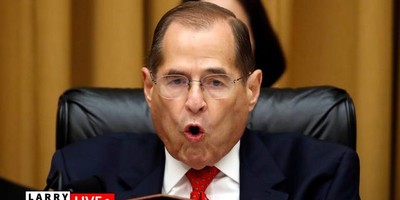Editor's Note: This column was co-authored by Ken Klukowski, a columnist for the Washington Examiner.
Governor Rick Perry unveiled his plan for fundamental tax reform with an optional flat tax. This bold proposal for economic growth is a fiscal game-changer, and demonstrably superior to the proposals of rivals Herman Cain and Mitt Romney.
In the 1990s, the National Commission on Economic Growth and Tax Reform (the Kemp Commission) chaired by the late Jack Kemp created the framework for a flat tax. This research was later refined and advanced by Steve Forbes, and the flat tax became central to his presidential campaign.
Since then the flat tax has caught on worldwide, especially in Eastern Europe. Fair and predictable, it has led to extraordinary growth. It removes government from the business of picking winners and losers, bringing everyone together to decide on a common tax rate.
Perry has made the flat tax a major proposal in his presidential campaign. It accomplishes the dual primary purposes of tax policy: raising revenue while optimizing economic growth.
The record of nations and states that adopt a flat tax proves its success in fueling prosperity. It does not punish success through progressive escalation of rates, and is stable and neutral in allowing private entities to freely make choices without government incentives or coercing decisions.
It is based on Ronald Reagan’s supply-side economic philosophy. By spurring economic growth, it increases government revenues. Coupled with cutting spending and a balanced budget constitutional amendment, the flat tax is a vehicle for ending our ruinous debt.
The flat tax also serves the secondary goal of helping the less fortunate. It allows a generous standard deduction and child tax credits to ensure that low-income Americans do not pay and working-income families would only pay modestly. It also rightly focuses on the family as the basic unit of taxation, rather than individuals.
Recommended
The flat tax is eminently fair. Take Perry’s rate of 20%. The well-off truly pay their “fair share” and pay more than middle-income Americans, because 20% of rich is more than 20% of middle-income.
Perry also deals with the foreseeable questions about deductions for charitable giving and mortgages. While many taxpayers don’t itemize their taxes, millions do, and care about those deductions.
There are other popular deductions and credits, however. Excluding them will cause conflict with powerful interests. Voters will need to be persuaded why a flat tax is preferable.
Perry also extends this 20% rate to corporate taxes. This will make America significantly more competitive in the global economy. Temporary incentives will also draw perhaps a trillion dollars from abroad back home.
Contrast Perry’s flat tax with Cain’s 9-9-9 plan. Parts of the plan—such as requiring two-thirds congressional approval to raise taxes—are clearly unconstitutional. Other parts—such as taxing state and local governments—are likely unconstitutional.
Even if modified to make it constitutional, 9-9-9 is not conservative. It creates the risk of permanently burning the candle at both ends with an income tax and a European-style value-added tax. And it either imposes punitive taxes on the poor, or makes then forever beholden to the central government with monthly “prebate” checks.
And Cain’s selling point of “simplicity” is unraveling, as he’s now revealing that certain income groups and locales would be subject to different taxes.
A national sales tax is also a gamble. Unlike the flat tax, which has been embraced by numerous countries and produces undeniable results, the sales tax is a black box. Various studies show that 9-9-9 would significantly raise taxes on many, and reports conflict.
But at least Cain gets credit for suggesting something bold. The other major candidate in the race, Romney, is largely taking a status-quo position on taxes, as he is on many other issues.
Romney is suggesting various tax reform measures. Every candidate does. But it’s nothing on the scale of Perry and Cain. We need fundamental overhauling, not technocratic tinkering.
America’s tax code is counterproductive and a failed attempt at social engineering. It’s time for a bold plan proven to foster economic growth. It’s time for a flat tax.

























Join the conversation as a VIP Member